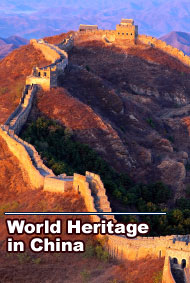
|
|
|
The Traditional Firing Technology of Longquan Celadon
In 2009, the traditional firing technology of Longquan celadon was inscribed on the Representative List of the Intangible Cultural Heritage of Humanity by the UNESCO. Description The city of Longquan in the coastal Chinese province of Zhejian is known for its celadon pottery and the traditional firing technology that imparts its distinctive glaze. Compounded from violet-golden clay and a mixture of burnt feldspar, limestone, quartz and plant ash, the glaze is prepared from recipes that have often been handed down for generations by teachers or within families. The glaze is applied to a fired stoneware vessel, which is then fired again in a repeated cycle of six stages of heating and cooling where precise temperatures matter a great deal: either over- or under-firing will spoil the effect. Experienced celadon artists carefully control each stage with a thermometer and by observing the colour of the flame, which reaches temperatures as high as 1310º C. The final product may take either of two styles: ‘elder brother’ celadon has a black finish with a crackle effect, while the ‘younger brother’ variety has a thick, lavender-grey and plum-green finish. With its underlying jade-like green colour, celadon fired by the family-oriented businesses of Longquan is prized as masterwork-quality art that can also serve as household ware. It is a proud symbol of the cultural heritage of the craftspeople, their city and the nation. Criteria for inscription on the Representative List R1: The traditional firing technology of Longquan celadon has been transmitted from generation to generation within the communities concerned for many centuries R2: Inscription of the element on the Representative List would contribute to the visibility and awareness of intangible cultural heritage, stimulate inter-cultural dialogue and promote respect for cultural diversity and human creativity in the world; R3: Various past and future safeguarding measures are described such as recognition of and subsidies to artists, scientific research and academic exchanges on the manufacturing skills, and awareness-raising about the element through the establishment of a museum and village; R4: The element was nominated by relevant organizations with the participation and consent of skill holders; R5: The element is inscribed on the National List of Intangible Cultural Heritage administered by the Department of Intangible Cultural Heritage of the Ministry of Culture. |